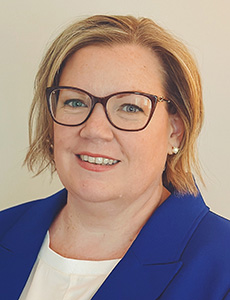The State of the States
Regulatory Review

California
Fee Schedule
The Division of Workers’ Compensation issued a second 30-day notice of modification to the proposed hospital outpatient departments and ambulatory surgical centers fee schedule regulation text.
The proposed modifications include clarification that for services rendered on or after Sept. 1, 2014, but before the effective date of this amendment, “Other Services” means Hospital Outpatient Department Services payable under the Medicare Hospital Outpatient Prospective Payment System that are not surgical, emergency department visits, or “Facility Only Services,” or services that are an integral part thereof. For services rendered after the effective date of this amendment, the definition of “Other Services” will not exclude “Facility Only Services.”
The modifications discontinue the current payment model which determines maximum allowance for “Other Services” on the Resource Based Relative Value Scale physician fee schedule relative values. The modifications also institute a payment model where the maximum allowances for all hospital outpatient department services that are payable under the Medicare HOPPS, including “Other Services,” are determined based on the Medicare HOPPS.
The modifications expand the definition of surgical procedure HCPCS codes to conform to Medicare’s HOPPS definition of surgical procedures for services rendered on or after the effective date of this amendment. Also, the changes adjust the fee schedule regulations to conform to relevant changes in the Medicare HOPPS for calendar years 2015 and 2016.
Home Health Care
The Division of Workers’ Compensation posted amended draft regulations regarding the implementation of a fee schedule for home health care services. Upon review of the comments received, the division amended its regulations to provide better organization and clarity. In addition, the division has adopted rates drawn from the federal Office of Workers’ Compensation Programs fee schedule for home health care services, which provides rates of provider compensation that are higher than in the previous draft.
A state bill grants the division the authority to base the home health care services fee schedule on sources other than the federal Medicare and state In-home Supportive Services programs.
The proposed regulations set forth a payment methodology and fees for skilled care by licensed medical professionals and unskilled personal and chore services for injured workers in the home setting that will provide incentives for an adequate number of potential care providers to participate in home health care for injured workers while containing costs to the overall workers’ compensation system.
Florida
Assessment Rate
The Department of Financial Services, Division of Workers’ Compensation issued a bulletin advising insurers, self-insurers, and other related stakeholders of an order setting the assessment rate for the workers’ compensation administration trust fund for the 2017 calendar year. Beginning Jan. 1, 2017, the assessment rate for the workers’ compensation administration trust fund is reduced from 1.43 percent to 1.25 percent. Those with questions should call Gene Smith, assessments coordinator for the division, at (850) 413-1644.
New York
Reimbursement for Burials, Funerals, and Memorial Services
The Workers’ Compensation Board amended a rule to provide for the reimbursement for memorial services under the workers’ compensation law and to increase the amount of reimbursable expenses for burials, funerals, and memorial services. Reimbursable expenses must not exceed $12,500 in the counties of Bronx, Kings, Nassau, New York, Queens, Richmond, Rockland, Suffolk, and Westchester, and $10,500 in the remaining counties. This applies to deaths occurring on or after June 8, 2016.
Ohio
Opioid Prescribing Rules
The Bureau of Workers’ Compensation proposed new opioid prescribing rules. The rules establish provisions and criteria for the treatment of opioid dependence that arose secondary to treatment with opioid medications covered by the bureau and provide and strengthen bureau peer-review processes for opioid prescribing that can be implemented to address serious noncompliance with these best practices.
Under the proposed rules, bureau reimbursement for opioid prescriptions used to treat a work-related injury or occupational disease is limited to claims in which current best medical practices are followed. The bureau will not reimburse for any further prescriptions for opioids, and prescribers should discontinue prescribing opioids, if the applicable criteria of the rules are not met. The rules would go into effect on Oct. 1 for claims with a date of injury on or after Sept. 1 and for all claims on or after Jan. 1, 2017.
Oregon
Cost-of-Living Matrix
The Workers’ Compensation Division issued a bulletin revising the cost-of-living matrix and vocational assistance fee schedule. The changes went into effect on July 1.
Tennessee
Mediation And Hearing Procedures
The Bureau of Workers’ Compensation proposed amendments to rules regarding mediation and hearing procedures. Visit the bureau’s website for more information.










